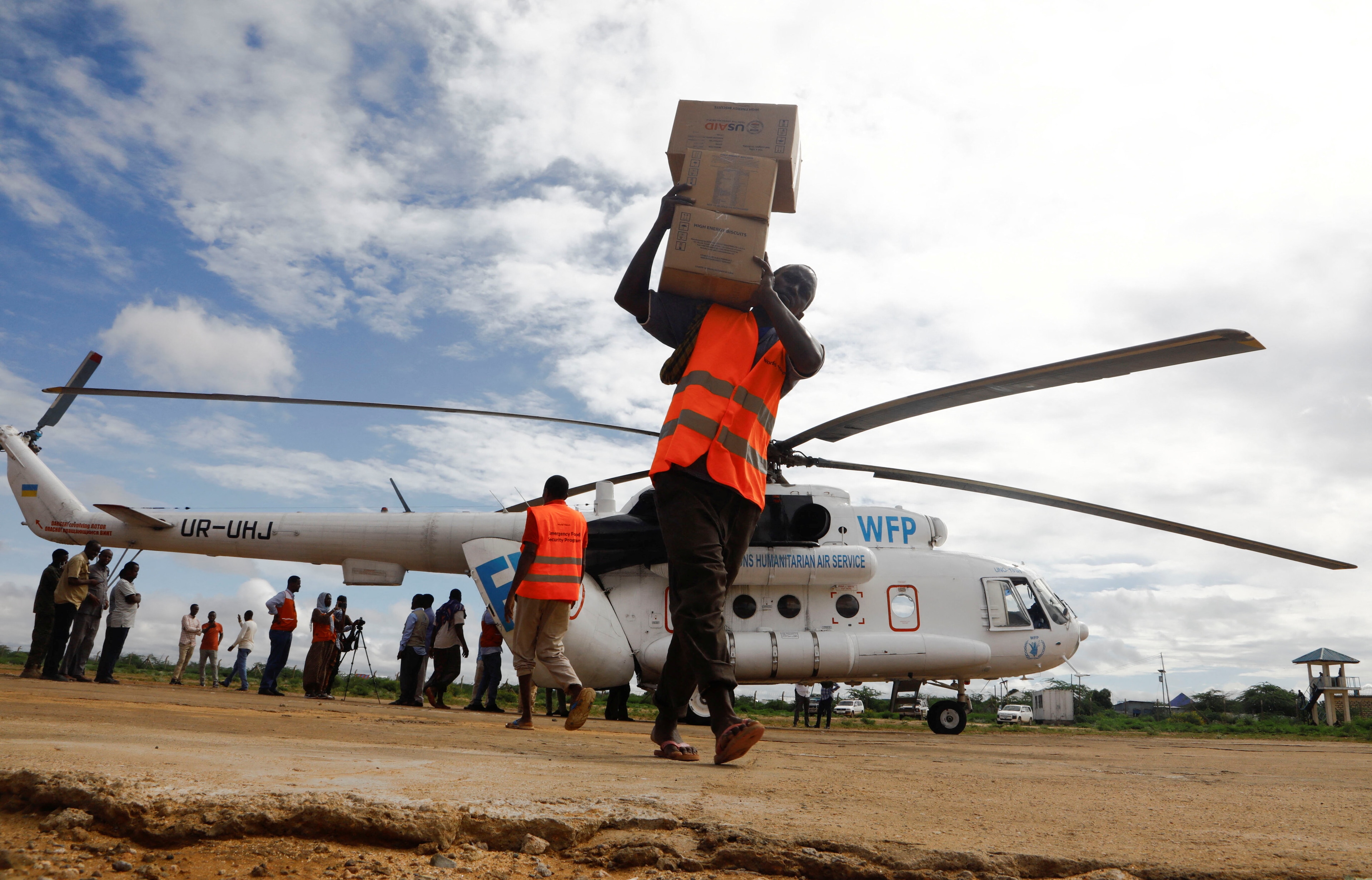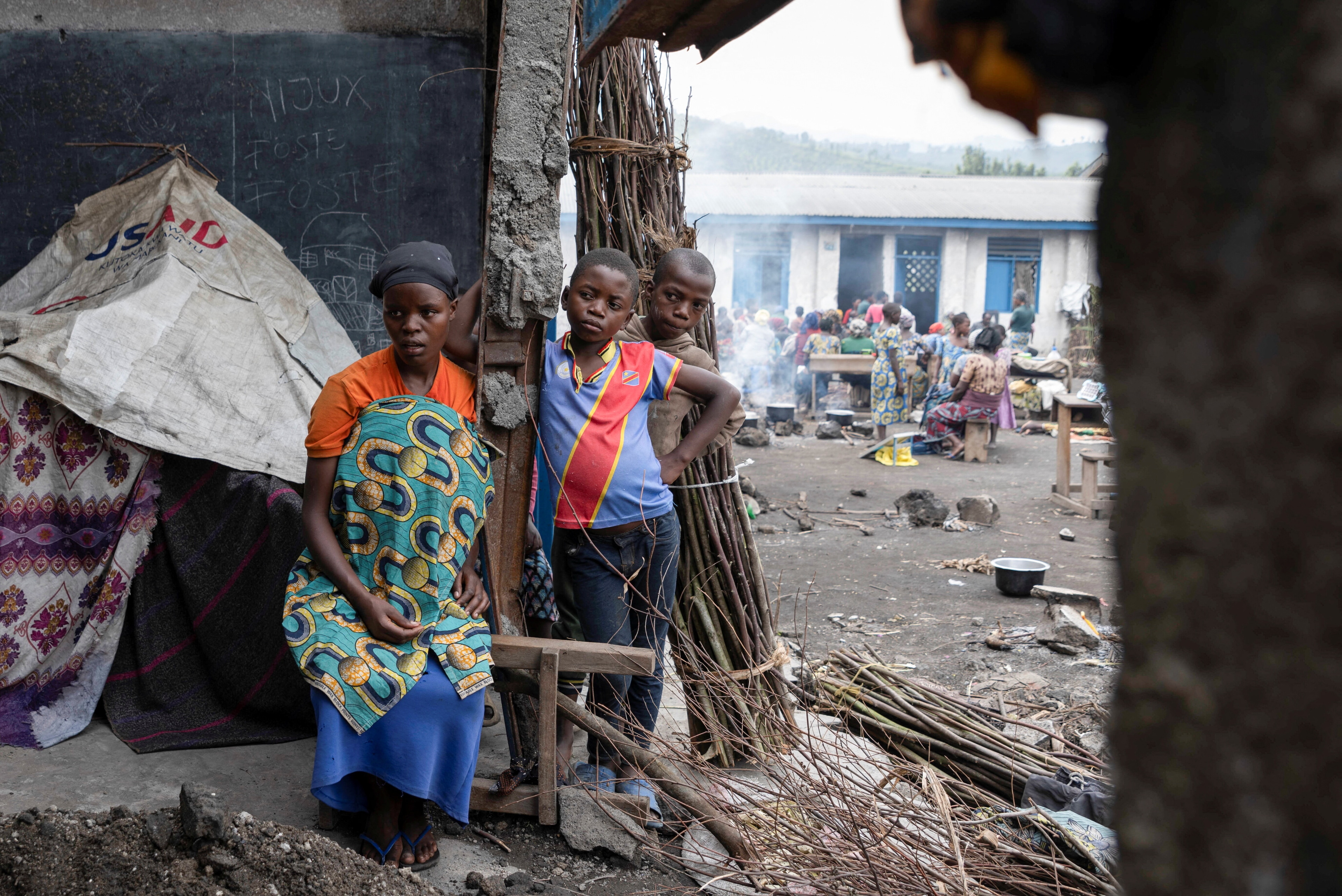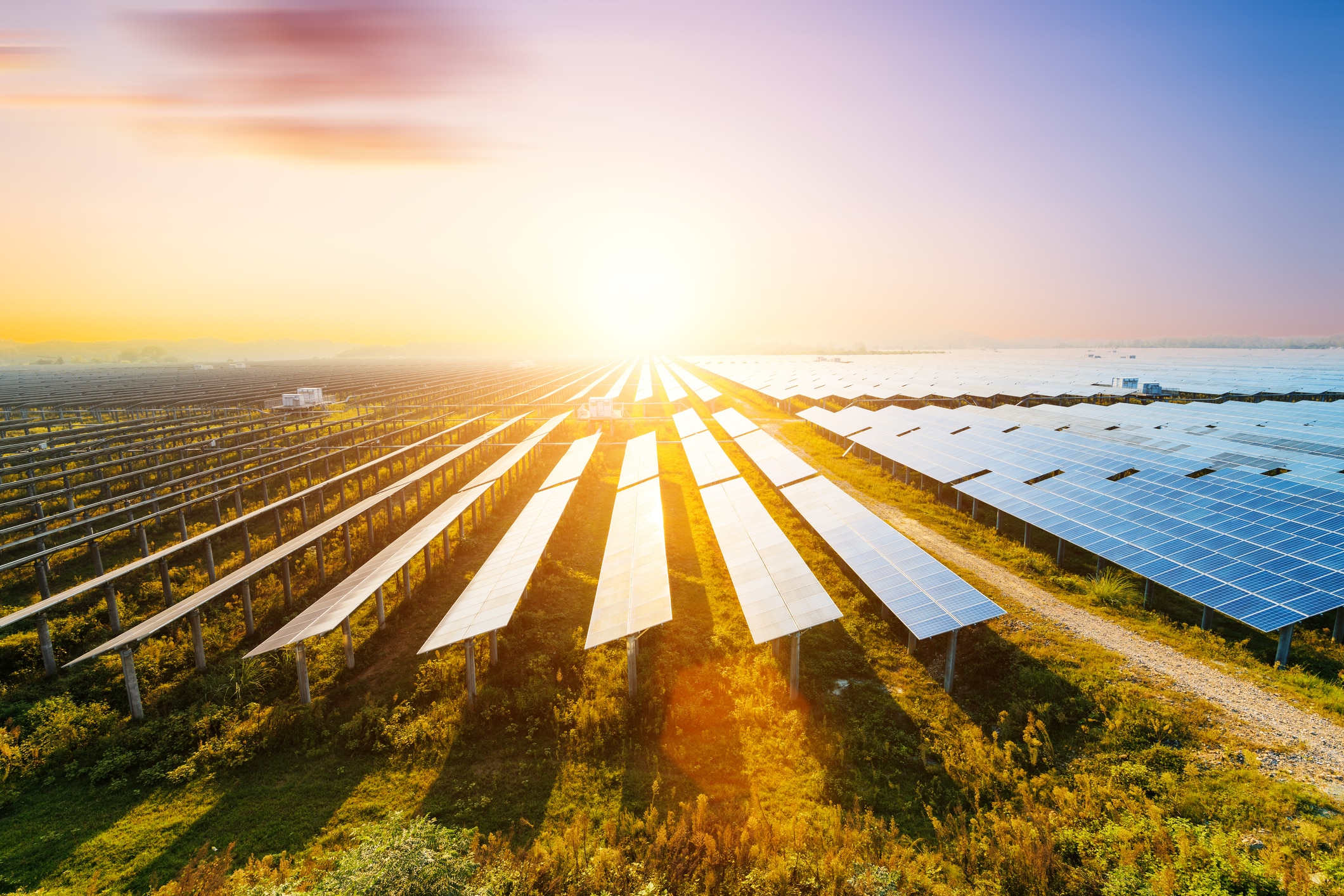SDIM24 highlights: Connectivity and bridging gaps - plus some surprising stats

SDIM24: On the occasion of the United Nations General Assembly, the World Economic Forum hosted the Sustainable Development Impact Meetings 2024.
Image: World Economic Forum"
Stay up to date:
The Digital Economy
- This week, the World Economic Forum gathered over 1,400 business leaders, policymakers, leaders from international and civil society organizations, innovators and social entrepreneurs for its Sustainable Development Impact Meetings (SDIM24) in New York.
- Global leaders, such as Former US Climate Envoy John Kerry, UAE's state minister for AI Omar Sultan Al Olama, and others, came together to advance progress on the United Nations Sustainable Development Goals.
- The meeting advanced key themes such as frontier technologies and development, human capital and growth, climate action, nature protection, and the energy transition.
How can we make progress on the big issues like sustainability and equity, while the world faces a host of intersecting challenges, from an ever-warming planet to geopolitical strife and economic uncertainty?
Leaders from around the world gathered in New York City this past week to discuss just this question during the World Economic Forum's Sustainable Development Impact Meetings (SDIM24).
Over 1,400 business leaders, policymakers, leaders from international and civil society organizations, innovators, and social entrepreneurs participated in discussions on topics such as the future of growth, the energy transition, and nature protection. The meeting, held during the 79th session of the United Nations General Assembly, underscored the work being done globally to advance the United Nations Sustainability Goals.
It was a week during which important research was released on issues from the global economic outlook to natural capital, and health gaps to job transitions. Insights from the sessions addressed compelling solutions to the world's challenges, including digital connectivity, holistic climate action, and the opportunity of green trade. Here are some of the highlights.
Joint-up action on an equitable future
What holds back connectivity – and access?
While leaders marked an important milestone for the Forum’s Edison Alliance initiative, connecting over 1 billion people globally ahead of a 2025 target, they were also careful to break down what’s needed to achieve further progress on digital inclusion. As Verizon CEO Hans Vestberg explained, digital inclusion is held back not just by access to a viable power grid, but also due to reasons of affordability and usability.
Of the more than two billion people globally not connected, said Vestberg, “the vast majority of [people] actually have access, but they cannot afford it. So they either cannot afford the service fee or you also need a device... a phone.”
Bridging that gap can bring real opportunity. “Connectivity is not just this handset to be connected,” added Achim Steiner, Administrator of the United Nations Development Programme. “It's meaningful connectivity, affordable connectivity and ultimately connectivity that allows people to enhance their skill set, their opportunities.”
Accept our marketing cookies to access this content.
These cookies are currently disabled in your browser.
What's needed for green trade?
Though world trade is set to grow by 3.3% in 2025, a range of barriers stand in the way of ensuring this growth aligns with global nature and climate goals.
A key trade session this week featuring former Presidential Envoy for Climate, John Kerry, discussed how trade can support a green transition. "This is the biggest economic opportunity - meeting the challenge of the climate crisis is the biggest economic opportunity the planet has known since the industrial revolution, literally everything has to be changed," he says.
A holistic approach to tackling global challenges.
“The T-shirt that you buy is land and water and biodiversity.” Ibrahim Thiaw of the drove home this key theme - that land, biodiversity and climate are interconnected - during SDIM’s 'Putting COPs Pledges into Practice' session.
Thiaw is the Undersecretary-General of the United Nations Convention to Combat Desertification (UNCCD). He and other leaders stressed the importance of a holistic understanding of the ways land, biodiversity, and climate are linked and how they, in turn, impact a host of challenges, from migration to geopolitical strife to food insecurity. A deepened understanding of these links can inform action and even lead to much-needed policy and funding coherence.
The importance of such an approach is highlighted during a triple COP year, as 2024 brings together leaders for the Convention on Biological Diversity, the Convention to Combat Desertification and the Convention on Climate Change.
Accept our marketing cookies to access this content.
These cookies are currently disabled in your browser.
Compelling facts and stats from this week
Only 17% of SDG targets are on track for 2030. The 2024 Sustainable Development Goals Report says nearly half of the SDG goals are making minimal or moderate progress, and over one-third are stalled or in some cases, regressing. Participants at SDIM highlighted the role of technology in driving SDG progress, the importance of sustainable growth, as well as the need for collaborative action for climate, nature protection and the energy transition.
2.6 billion are still not online. Around 1 in 3 people globally do not have access to the internet, and 95% of those live in the Global South. Watch experts explain the impact and what the EDISON Alliance is doing to close the digital gap.
Less than 5% of global corporate philanthropic funding is deployed to climate and nature. Philanthropy has proven essential in driving progress across many critical areas, yet only 11% of this is represented by corporate philanthropy and only 5% of that is allocated to climate-related issues. These are the stark stats of a new World Economic Forum white paper exploring the future role the corporate community can play.
54% of chief economists believe the global economy may be stabilizing. While the short-term outlook for the global economy is stabilizing, and many experts are cautiously optimistic about it, many vulnerabilities remain, according to our latest Chief Economists Outlook, a quarterly temperature read on the global economy.
40% decline in the world’s stock of natural resources. Benefits from the world’s natural capital - the resources that can be cultivated, extracted, or traded - extend beyond the price of goods. Such benefits like climate regulation, water quality or pollination are often considered “free” inputs into production processes without clear incentives for their protection or maintenance. As a result, from 1992 to 2014 the stock of natural capital per person globally declined by nearly 40% while produced capital per person doubled. To reverse this situation, the nature positive economy requires $2.7 trillion of annual capital investment through to 2030, as pointed out in this week’s Investing in Natural Capital: Innovations Supporting Much-Needed Financing for Nature report.
Nearly one-quarter of all jobs globally are projected to change by 2027 - making job transitions critical. A new whitepaper highlights how the ability of workers to transition into new roles is becoming increasingly critical in a changing labour market – not only for maintaining employment and advancing social mobility but also for economic productivity and people's well-being. Bonus: It provides a framework for businesses and the government to facilitate job transitions.
1400 dialects highlighting the ‘linguistic diversity gap’ in AI. Africa has about 1400 distinct dialects but the current AI systems aren’t serving this diversity, as Crystal Rugege, Managing Director of the Centre for the Fourth Industrial Revolution Rwanda, highlights during her discussions in the ‘AI for Global Good’ session. Read more on the ‘missed opportunity’ with AI’s linguistic diversity gap.
Where you live can determine your life expectancy and the difference can be nearly a quarter-century. Our newly released whitepaper, ‘Closing Health Gaps through Collaborative Action’, highlights how conditions within communities, from housing options to access to healthcare, can contribute to differences in health outcomes for people and communities. But also, how these place-based approaches can be a powerful tool for creating healthier, more inclusive, and more resilient communities.
Other reads on Agenda
Intelligent age: Rapid technological advances have propelled us into the Intelligent Age, but cooperative and mindful management is essential, writes the Forum’s Founder and Executive Chairman, Klaus Schwab.
Sluggish growth: The majority of the chief economists surveyed (91%) expect the global economy to remain unchanged or to weaken over the next year. Six economists share their opinions.
STEM in South Asia. Addressing South Asia’s digital gender gap and its root causes could help unleash a wave of economic participation by women, writes the Fourm's Head of Digital Inclusion, Kelly Ommundsen.
Decarbonizing shipping. Ahead of the Marine Environment Protection Committee (30 Sept to 4 Oct), Vincent Clerc, CEO of A.P. Møller-Maersk says levelling the economic playing field for green fuels in shipping is urgently needed.
Responding to mpox. The global health community has learned from COVID-19 and enabled rapid access to vaccine financing during the early stages of the mpox health emergency, writes Sania Nishtar, CEO of Gavi, the Vaccine Alliance.
Don't miss any update on this topic
Create a free account and access your personalized content collection with our latest publications and analyses.
License and Republishing
World Economic Forum articles may be republished in accordance with the Creative Commons Attribution-NonCommercial-NoDerivatives 4.0 International Public License, and in accordance with our Terms of Use.
The views expressed in this article are those of the author alone and not the World Economic Forum.
Related topics:
Forum Stories newsletter
Bringing you weekly curated insights and analysis on the global issues that matter.
More on Sustainable DevelopmentSee all
Vanina Farber
July 21, 2025
Ali Alwaleed Al-Thani and Santiago Banales
July 21, 2025
Goodness Esom
July 18, 2025
Robert Piper
July 17, 2025
Lisa Satolli
July 17, 2025
Susan Mang'eni and Mamadou Ndiaye
July 15, 2025





